Humans
Sign up for our newsletter
We summarize the week's scientific breakthroughs every Thursday.
-
 Health & Medicine
Health & MedicineFeedback
Calculating vaccines' impact, cat-induced bird death toll revised, taming wildcat genetics, and praise for The Science Life.
-
 Health & Medicine
Health & MedicineYour epigenetics can be a pain
A new study shows that your epigenome can play an important role in pain sensitivity, potentially offering a new target that could make development of a more effective painkiller less of a ... pain.
-
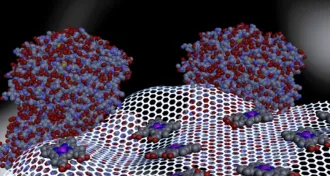 Materials Science
Materials ScienceGraphene-based material prevents blood clots
When researchers coated a plastic film with the new material, clotting was greatly reduced and continued even after three days.
-
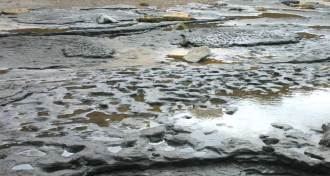 Archaeology
ArchaeologyNearly 1-million-year-old European footprints found
Erosion temporarily unveils remnants of a Stone Age stroll along England’s coast.
By Bruce Bower -
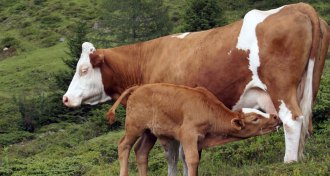 Health & Medicine
Health & MedicineDoes breast milk come in pink and blue?
A new analysis of cows shows that mamas make more milk for daughters. Other studies have hinted that human moms produce different milk for sons than for daughters, so perhaps lactating women also boost production for daughters.
-
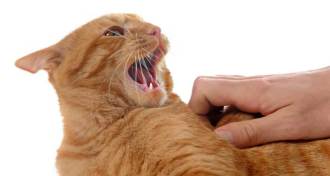 Health & Medicine
Health & MedicineBad kitty: Cat bites can cause nasty infections
Three in 10 patients seeking treatment for hand bites were hospitalized, study finds.
By Nathan Seppa -
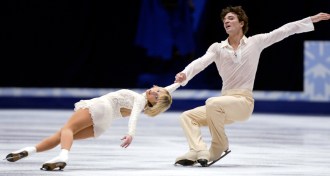 Science & Society
Science & SocietyFigure skating judges get a 10 for duplicity
Sport’s reform efforts have resulted in more nationalistic bias and vote trading.
By Bruce Bower -
 Health & Medicine
Health & MedicineVitamin C could give chemo a boost
Injected into mice, the supplement helped anticancer drugs shrink tumors.
By Nathan Seppa -
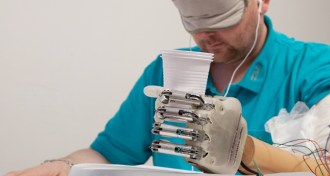 Neuroscience
NeuroscienceProsthetic provides sense of touch to man who lost hand
A new prosthetic hand restores a sense of touch by stimulating nerves in the arm.
-
 Genetics
GeneticsChemical changes to genes make twins’ pain differ
Chemical changes to genes may make identical twins experience pain differently.
-
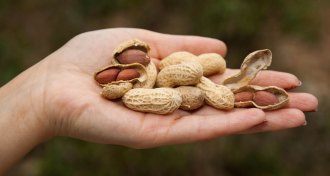 Health & Medicine
Health & MedicineOvercoming peanut allergy requires maintenance for most
In small study, nearly all people who stopped eating the legumes daily later experienced an allergic reaction.
By Nathan Seppa -
 Humans
HumansDNA suggests humans moved back into Africa
About 3,000 years ago, human populations from western Eurasia migrated back into eastern Africa, specifically Ethiopia.